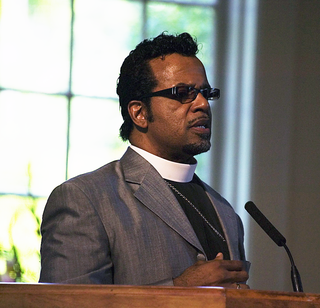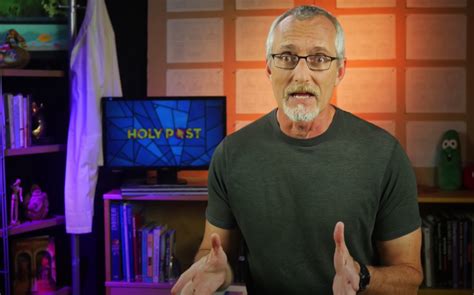A Quote by Philip Yancey
I have more appreciation for why the Bible avoids fuzzy psychologisms and says simply to the stealer, "Steal no more," and to the tempted, "Flee temptation." The Bible challenges us to look upward, not inward, for counsel at moments of crisis.
Related Quotes
When you look at the Bible, and I read the Bible very seriously, for a lot of my life, I believed the Bible ordained the death penalty, and the Bible seemed to be very clear about that. But the more I look, the more troubled I became because it's not that simple. In the Bible, there's some 30 death-worth crimes, like working on the Sabbath, or disrespecting your parents. Are we that fundamental that we should bring back that death penalty?
When we turn the Bible into an adjective and stick it in front of another loaded word, we tend to ignore or downplay the parts of the Bible that don’t quite fit our preferences and presuppositions. In an attempt to simplify, we force the Bible’s cacophony of voices into a single tone and turn a complicated, beautiful, and diverse holy text into a list of bullet points we can put in a manifesto or creed. More often than not, we end up more committed to what we want the Bible to say than what it actually says.
The angels of the Bible terrify the humans to whom they visit; they startle and scare and even stun the humans. Why? Because in the Bible angels are colossal figures, fiery in light and, more often than not, overwhelming in their power. Angels, then, in the Bible are supernatural beings that humble us in their presence.
[The Bible] has to be interpreted. And if it isn’t interpreted, then it can’t be put into action. So if we are serious about following God, then we have to interpret the Bible. It is not possible to simply do what the Bible says. We must first make decisions about what it means at this time, in this place, for these people.
There is more Bible buying, Bible selling, Bible printing and Bible distributing than ever before in our nation. We see Bibles in every bookstore - Bibles of every size, price and style. There are Bibles in almost every house in the land. But all this time I fear we are in danger of forgetting that to HAVE the Bible is one thing, and to READ it quite another.
I looked back at the previous 10 years and realized I had spent 10 years trying to convince kids to behave Christianly without actually teaching them Christianity. And that was a pretty serious conviction. You can say, 'Hey kids, be more forgiving because the Bible says so,' or, 'Hey kids, be more kind because the Bible says so!' But that isn't Christianity, it's morality.
Sad, indeed, would the whole matter be if the Bible had told us everything God meant us to believe. But herein is the Bible greatly wronged. It nowhere lays claim to be regarded as the Word, the Way, the Truth. The Bible leads us to Jesus, the inexhaustible, the ever-unfolding Revelation of God. It is Christ "in whom are hid all the treasures of wisdom and knowledge," not the Bible, save as leading to Him.
It is fashionable in some academic circles to exercise scholarly criticism of the Bible. In so doing, scholars place themselves above the Bible and seek to correct it. If indeed the Bible is the Word of God, nothing could be more arrogant. It is God who corrects us; we don’t correct Him. We do not stand over God but under Him.


































